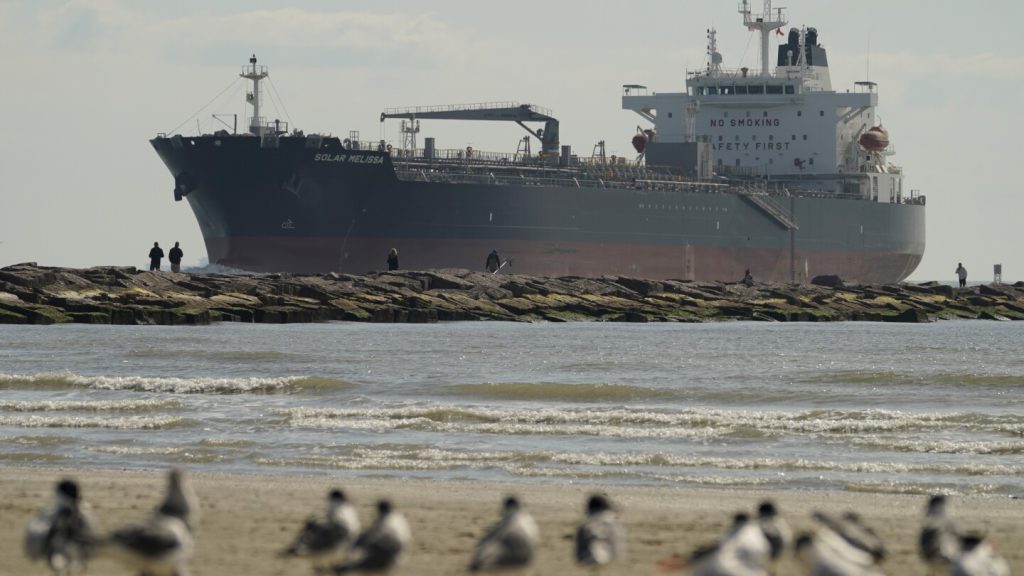The Biden administration’s approval of a new deepwater oil export terminal off the Texas coast has sparked criticism from environmentalists who see it as a betrayal of President Biden’s climate agenda. The Sea Port Oil Terminal in Freeport, Texas, will be the largest of its kind in the U.S., with a capacity to load two supertankers at once and export 2 million barrels of crude oil per day. Environmental groups have expressed concerns about the impact of the project on greenhouse gas emissions and local communities, emphasizing the need to keep oil in the ground to protect the climate and public health.
Despite opposition from environmentalists, the Maritime Administration has issued a deepwater port license for the project, citing compliance with federal requirements and a determination that the terminal’s operation is in the national interest. The agency highlighted the extensive review process involving multiple federal, state, and local agencies, which ultimately concluded that the project would not significantly affect U.S. crude oil production or consumption. However, critics have dismissed these claims and called for a more consistent approach to fossil fuels, urging President Biden to prioritize a shift away from dirty energy projects.
The approval of the Sea Port Oil Terminal comes at a time when the Biden administration has faced criticism for its handling of fossil fuel projects, particularly in light of the delay in considering new natural gas export terminals. Environmentalists argue that the expansion of LNG exports contributes to planet-warming emissions and undermines efforts to reduce climate pollution. The administration’s decision to pause new LNG projects has been praised by environmental advocates but has also drawn criticism from industry groups and Republicans who see LNG exports as crucial for energy security and job creation.
Enterprise CEO Jim Teague welcomed the approval of the oil terminal, emphasizing its environmental benefits and role in delivering crude oil to global markets in a safer and more efficient manner. The project will involve the construction of two pipelines to transport oil from shore to the deepwater port, reducing the need for ship-to-ship transfers. The terminal is expected to become operational by 2027, following years of collaboration with regulatory authorities and stakeholder engagement. Sen. Ted Cruz of Texas hailed the license approval as a victory for the state’s energy industry, highlighting the potential job creation and energy security benefits it could bring.
The Sea Port Oil Terminal project has faced legal challenges from environmental groups, but a recent ruling by the Fifth Circuit Court of Appeals dismissed claims of federal agencies failing to uphold environmental laws in their review of the project. The terminal, located offshore of Brazoria County in the Gulf of Mexico, is one of several license applications under federal review. While the project has received support from industry stakeholders and political figures like Sen. Cruz, its approval has reignited debates over the Biden administration’s approach to fossil fuel projects and climate policy. Environmentalists continue to call for a more decisive shift away from fossil fuels to protect the environment and public health.


